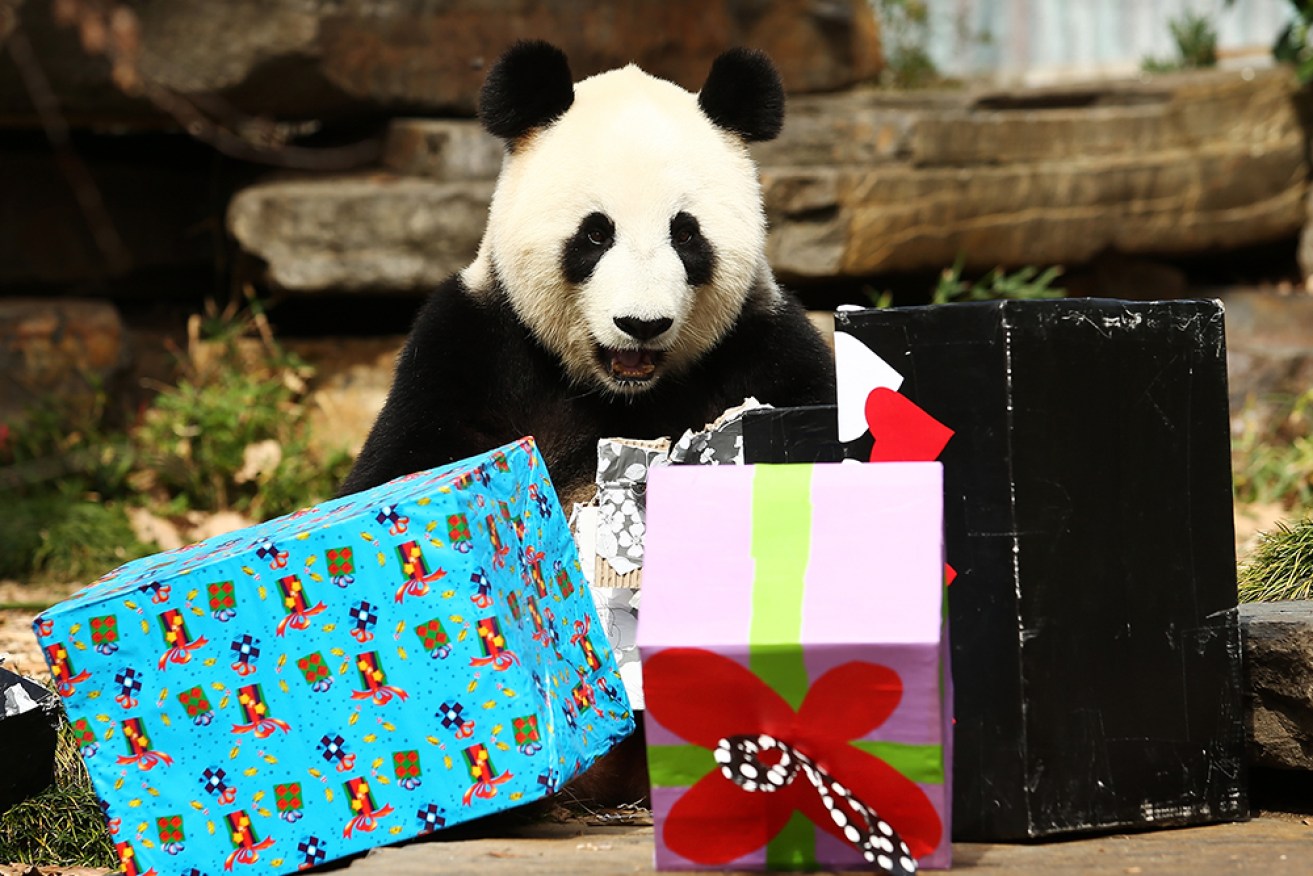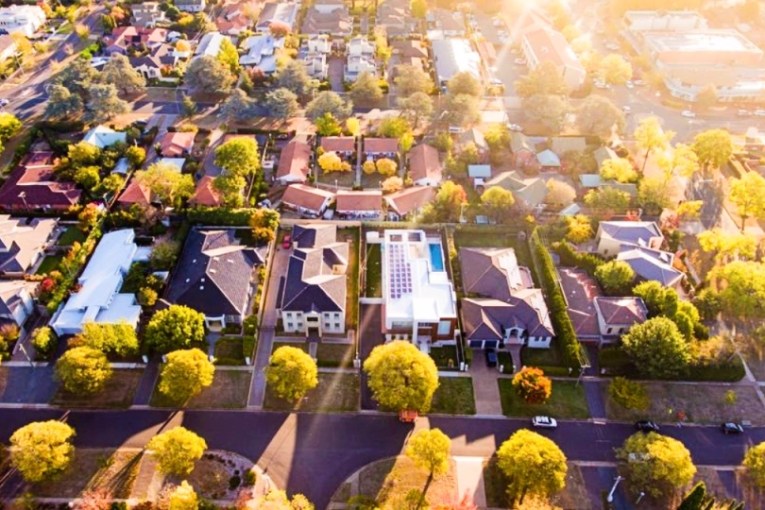China and Australia: Bamboozled by ‘panda diplomacy’ to barley speaking


Money or the box? Adelaide Zoo's giant panda Fu Ni. Photo: Getty
Giant pandas Wang Wang and Fu Ni remain content and locked down in their Australian home at the Adelaide Zoo.
But despite being on loan until 2024, the bamboo-munching funsters had better not get too comfortable.
As Australasia’s only breeding pair of giant pandas they’ve enjoyed a laid-back, sunny lifestyle and a stream of visitors since moving into their shared home in 2009.
The coronavirus stopped all that.
Not only were the visitors banned, but outside their serene walls sickness and economic ferment overtook the narrative between their home and adopted nation, to the extent that nothing can be taken for granted.
China’s so-called ‘panda diplomacy’ has been one way the growing superpower has extended its influence to friends and trading partners around the world – although sometimes, when things get black and white in diplomatic terms, the cuddly ones are recalled.
Now, even the pandas can’t hide the tension.
In the Pacific, China is splashing billions of dollars on infrastructure projects and health care.
Indeed China’s Pacific plan has been so successful in co-opting our near-neighbours that despite the federal government’s cutting of foreign aid budgets, funding in the Pacific has for the most part been quarantined from cuts in a bid to match the largesse.

Coronavirus or not, Chinese President Xi Jinping is impressing his cadres. Photo: Getty
It’s also pushing its own barrow through the Belt and Road co-operation and trade initiative that the Victorian government is keen on, but which has met with criticism from the federal government this week.
And then there’s China’s cash splash in Australian education institutions, a trend that has brought into question that sector’s reliance on fee-paying students.
Graeme Smith, a research fellow at the Department of Pacific Affairs, Coral Bell School of Asia Pacific Affairs, Australian National University
says China’s attempts at world influence ultimately stems from its domestic intrigues.
“In terms of how we think of soft power in Australia – has China become more attractive to the Australian public – then China’s expensive soft power push has been a colossal failure,” Dr Smith told The New Daily.
“But that’s not the metrics they’re using.
The main target of soft power politics is the tens of millions of cadres who make up the CCP, to reassure them that Xi Jinping is confident, assured and strong in his foreign policy.’’
The increasing fault lines between the United States and China – which started with Donald Trump’s complaints on trade and have escalated to his suggestion the coronavirus outbreak began in a Wuhan laboratory – is making things increasingly difficult for Australia.
After Australia took the lead in seeking an independent inquiry into the pandemic outbreak, China upped its rhetoric, with government mouthpiece the Global Times describing Australia as a “giant kangaroo that acts as the dog of the US”.
That’s more cat scratch than warm and fuzzy giant pandas.
Things got serious though when China slapped a 80 per cent tariff on Australian barley imports, claiming they were against trade rules.
Trade Minister Simon Birmingham also conceded that his Chinese counterpart is not taking his calls, a move he said was “disappointing”.
“The Australian government will always front up to have a conversation, even where we have disagreements,” Mr Birmingham said.
“We think the best way to move through those disagreements is to engage in dialogue.”
The $90 billion economic imperative has often kept Australia on a tightrope when dealing with its largest trading partner, but Victoria University researchers last year suggested that skirmishes over trade may well be overplayed.
They claimed the nation needs to distinguish between a commodity downturn or Chinese economic downturn that would smash iron ore exports and one-off trade snubs caused by diplomatic stoushes.
The big caveat though was education, with Australian universities now heavily reliant on fee-paying Chinese students – a model that has been criticised inside and outside the educational field.
In October the ABC’s Four Corners revealed the Chinese government had co-funded at least four courses at the University of Queensland.
The university’s courses were developed in partnership with its Confucius Institute, one of 13 such Chinese government-funded soft power centres in Australia, which run language and culture classes.
Dr Smith says Australia must recognise that some universities and business schools have been forced by budget cuts to look elsewhere for cash and, in doing so, some have “gone over the top” in tailoring courses to boost revenue and provide a pathway to residency.
He said this approach was not good for Australia or the Chinese students – many of whom may wonder why they paid so much money to sit in a classroom where 90 per cent of their classmates are also from China.

International education is a $34 billion sector for Australia, and in 2018-19 Chinese students brought in an estimated $12.1 billion. Photo: Reuters
“There were serious issues around mental health and social isolation for this cohort even before the virus hit,” Dr Smith said.
“The call to diversify is sensible, and many universities haven’t pursued this seriously enough … the hard reality is there is no other region which can easily take the place of the PRC – the potential student numbers from India, South-East Asia and Brazil don’t come close.
Feng Chongyi, Associate Professor in China Studies at the University of Technology Sydney, says ultimately the soft power push needs to be met with some hard truths about Australia’s values.
Dr Feng has long been critical of Chinese government influence in local Chinese media and on campuses.
In 2017 he was detained in China for 10 days while visiting his mother, and does not see any short-term easing of tensions while the Chinese government remains so hostile to criticism.
“There is nothing wrong for Australia to support the US as a trustworthy partner of democratic alliance,” Dr Feng told The New Daily.
“China’s displeasure stems from the nature of the CCP regime, which has become increasingly hostile to liberal international order and universal values of human rights, democracy and the rule of law in recent years.
Australia is entitled to pursue foreign policies in line with its national interests and core values such as human rights, democracy, equality and the rule of law.
“Australia’s relationship with China can be improved if the CCP regime changes its hostility toward universal values and bullying behaviours.”
Dr Feng says Australia cannot afford to try and balance its relationship between the US and China, saying: “Prime Minister Scott Morrison gets it right to characterise the US as an ally and China a business partner”.
“It is wrong to put autocratic China and democratic USA on a par and absolutely right for Australia to side with its democratic ally, USA, when liberal and democratic principles are challenged by the CCP regime.”
And the way forward?
“In dealing with communist China, Australia has to stand firm in upholding its core values and protecting the integrity of its political institutions, educational institutions and business practice and do its best in minimising the negative impact of the CCP united front operations.”
It seems Adelaide’s giant pandas will need to produce lot of bamboo-chewing cuteness if they’re to bridge the gap and stay in Australia beyond 2024.







